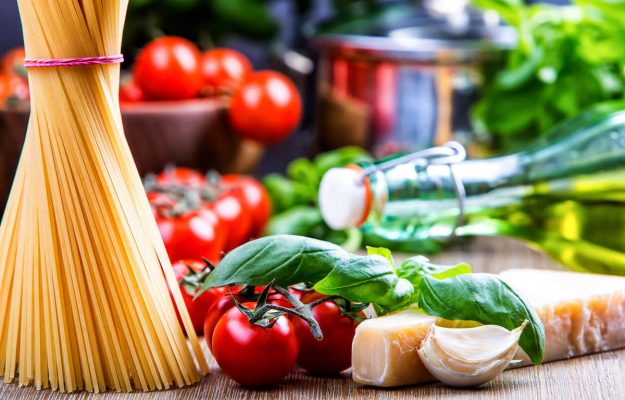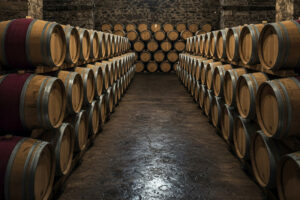Italy is closing its doors. With the government decree passed in the recent days, containing measures to try to contain the epidemic of coronavirus, schools and universities suspend activities until March 15, the football championship will be played behind closed doors for a whole month, crowded events suspended, restrictions on cinemas and theatres, for all to a safe distance of one meter. In short, we will have to put aside for a while our habits, our sociality, our desire to be together. But without losing the light of reason, as it seems to be happening outside the Belpaese, where between the irony of French TV and the usual hurricane of fake news, which from the web - and not only - hits the reality every time the world lives a moment of crisis or difficulty, bringing with it a wrong and harmful narration about the risks associated with the production of food products made in Italy.
A narration that leads - inevitably - to fear, absolutely unfounded but enough to put in trouble an entire sector, with importers and buyers who ask the producers of the Belpaese to certify the wholesomeness of cheese, fruit, vegetables, and the Government which, through a letter signed by the Minister of Foreign Affairs Luigi di Maio and the Minister of Agricultural Policies Teresa Bellanova, asked the Oms to give its opinion, reiterating the absolute healthiness of the agro-food made in Italy and the total groundlessness of such requests. Also because, as can be read among the guidelines of the Ministry of Health, “respiratory diseases are not transmitted through food”, an aspect reiterated on more than one occasion also by Professor Roberto Burioni, Professor of Microbiology and Virology at the Faculty of Medicine of San Raffaele in Milan and one of the world’s leading experts on the subject, recalling that the contagion “always occurs by breathing and never through food, even if raw”.
The damage, however, is done, and if on the one hand, the Government has already allocated 716 million euros for a new export plan that aims to defend Italian products - not only those of the agri-food industry - under attack abroad for the coronavirus emergency, there are Regions, like Veneto, at the heart of the emergency, that move independently to “Free agricultural goods and products from the surreal and irrational fear of coronavirus by relaunching the safety and quality of the entire food chain of the made in Veneto and find seasonal labor to not stop the activities on the fields and the harvesting of asparagus, strawberries, greenhouse vegetables, cherries”, as stated in the statement of the Department of Agriculture. Which puts another problem on the table, that of work. Seasonal workers, often foreigners, are returning home, and it is difficult, in these conditions, with the quarantine imposed on those returning from Veneto and Lombardy even from Romania, to return for the harvest, while Coldiretti opens another front, that of foreign transporters, who do not want to cross the border for fear of the coronavirus, but in a country like Italy, where 88% of commercial transport is by road, the fear that blocks the trucks risks paralyzing the entire food chain.
This only aggravates the situation further, with the collapse of tourism from abroad that affects every sector of trade and hospitality: the cancellations are down, consumption outside the home is falling, the airports are empty, and the public establishments, gathered in the Fipe, do the first accounts: 50 million euros canceled every day, make the Italian public establishments the sector most affected by the effects of the coronavirus. And 72.7% of businesses believe that the crisis will last for a long time to come, with a worsening in the next two months and sharp decreases in turnover, with peaks of up to 80%. A first estimate calculates the sector’s turnover losses in three months at €4 billion, worth around €1.5 billion in terms of value-added. “Collapse of mobility and sociality are the combination that is jeopardizing, throughout the country, the survival of many companies, which is contrasted so far by the lack of useful measures to accompany the seriousness of the moment,” comments Fipe.
A moment that, we hope as soon as possible, we will put behind us, and then there will be a need to rebuild and relaunch an image if not damaged certainly blurred. And it will take the effort of everyone, “from the political ruling class to the entrepreneurial one - explains to WineNews Alberto Mattiacci, professor of Marketing and Business Management at La Sapienza University - to finally understand that communication is not form, but substance. This crisis shows us that a missing or wrong communication, like the one that has been made so far in the country and from the country outside, has a profound impact on the economy. We learn from this situation, with humility, that communication is a profession, it is technical, it is not improvised, and it has a direct impact on economic values”. In this sense, companies “simplifying, must, first of all, face the great theme of distribution: Italian companies are very good at making products but they must take note that distribution is fundamental, alliances must be made so that distribution itself shares the interest in transferring the value of Italian products to the consumer. The second point - continues Mattiacci - concerns the need for long-term plans, from five years onwards, to work on the reputation, names, and companies. Coming to terms with what is happening with the coronavirus, there is a further lesson to be learned: unless we are talking about multinationals, which are very few in Italy, nobody can do it alone. We need to get together - between names and consortia - and work in the long term to rebuild the reputation that our products have anyway”.
Copyright © 2000/2026
Contatti: info@winenews.it
Seguici anche su Twitter: @WineNewsIt
Seguici anche su Facebook: @winenewsit
Questo articolo è tratto dall'archivio di WineNews - Tutti i diritti riservati - Copyright © 2000/2026







































































































































































































